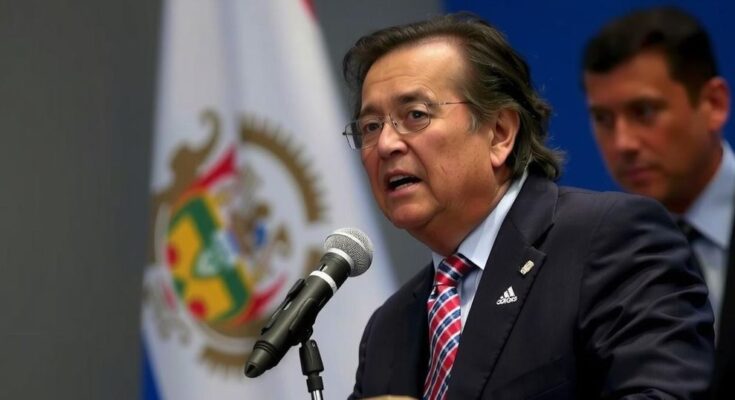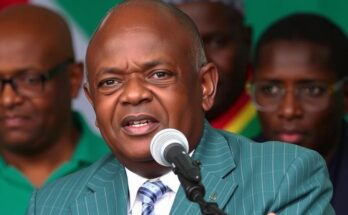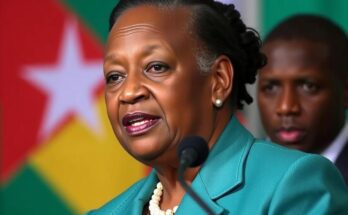Yamandú Orsi won a narrow victory over conservative Álvaro Delgado in Uruguay’s presidential runoff election, receiving around 49% of the vote. His election marks a shift towards leftist policies amid global anti-incumbent sentiments. Orsi has pledged to unite the nation and address economic challenges, prioritizing targeted reforms and trade re-evaluation as he prepares to take office on March 1, 2025.
In a remarkably close runoff election held on November 24, 2024, Yamandú Orsi, the left-wing opposition candidate, triumphed over conservative Álvaro Delgado, marking a significant transition in Uruguayan leadership. With approximately 49% of the votes compared to Delgado’s 46%, Orsi’s victory has resonated as a global trend against incumbent parties in a year of electoral upheaval. Post-election celebrations erupted in Montevideo as Orsi pledged to foster unity among Uruguay’s citizens and address pressing economic concerns.
The recent election in Uruguay comes against a backdrop of increasing dissatisfaction with governmental policies, particularly in the wake of the COVID-19 pandemic. With growing frustration over economic challenges and social issues, the electoral outcome signals a shift towards leftist policies previously experienced under the Broad Front coalition’s tenure between 2005 and 2020. Orsi’s platform reflects a blend of market-friendly initiatives and essential social programs aimed at revitalizing the economy.
Yamandú Orsi’s election as President of Uruguay signifies a notable change in political direction, responding to public desire for stability and economic reform. His commitment to dialogue and unity is critical as he transitions into office. As Orsi prepares for his presidency commencing on March 1, 2025, the focus will be on implementing reforms that resonate with the electorate’s concerns while navigating the complexities of both domestic and international trade relations.
Original Source: indianexpress.com




